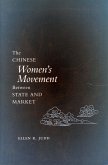This book writes itself off the guide map of familiar literary forms and melts down conceptual barriers, offering a new kind of reading and thinking experience as it tells the life and travel stories of fascinating women and examines women's physical mobility in a culture of gendered, postcolonial space that restricts their movement. Straddling the divide between fiction and scholarship, it combines fictional narrative, contemplation, theoretical thinking, scholarly discussion, and interviews. The book examines and crosses boundaries on various ontological levels--between genders, languages, historical epochs, and literary genres--as it questions reality, identity, knowledge, culture, truth, and mind. While openly confronting the author's location in Israel, the book looks at women's ability to take themselves from place to place, viewing space and spatial freedom as deeply gendered in modern Western cultures. From this perspective, "home" is imagined as a protective holding space for one gender, and girls are systematically deskilled for spatial competence. The author tells of women whose lives embody a powerful project of travel, realizing exceptional degrees of independence, and also tells of women who refrain from driving, a major contemporary tool of autonomous movement. The book imagines a movement-nurturing space that subverts the confining construct of home. From this nonexistent yet tangibly welcoming home space, the "glass corridors" of home--analogous to the "glass ceiling" of professional life--can be brought into full view and denaturalized. This cannot be accomplished, however, without a compelling, painful look at the patriarchal, colonial, and militarized structures underpinning all Western travel, women's emancipatory journeys included--a look influenced by the still-colonial structure of the author's Israeli placement.
Hinweis: Dieser Artikel kann nur an eine deutsche Lieferadresse ausgeliefert werden.
Hinweis: Dieser Artikel kann nur an eine deutsche Lieferadresse ausgeliefert werden.








